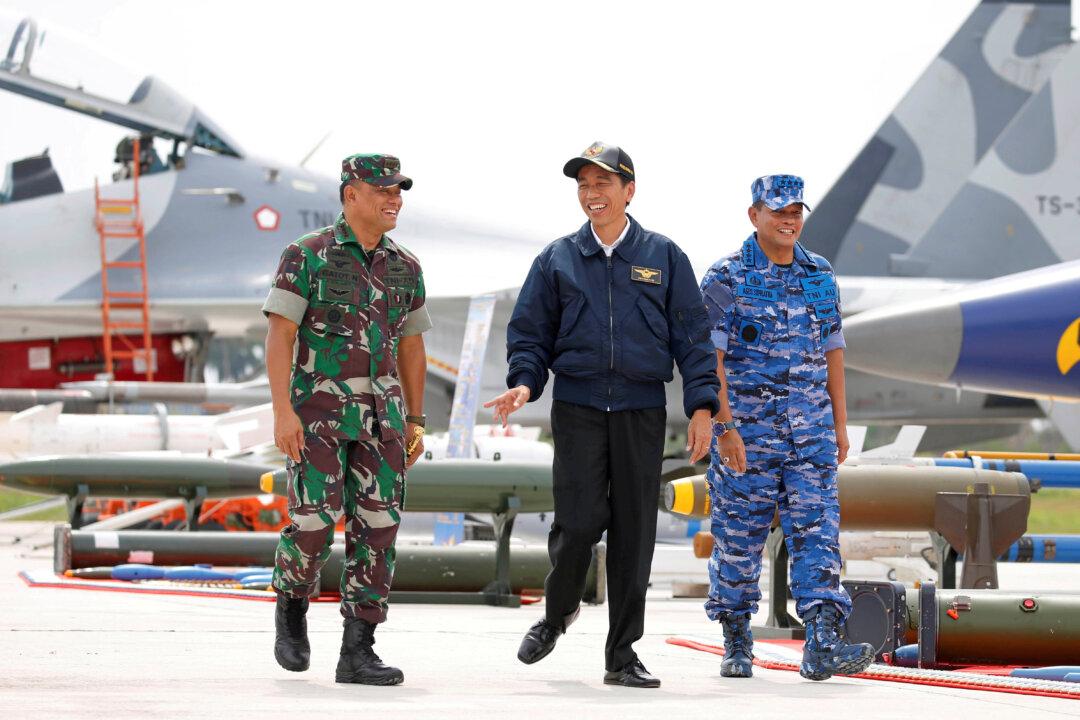JAKARTA—Indonesia’s air force deployed four fighter jets to the South China Sea on Jan. 7 in a stand-off with Beijing after Jakarta protested over a Chinese violation of its exclusive economic zone.
The stand-off began in mid-December when a Chinese coast guard vessel, accompanying Chinese fishing boats, entered waters off the coast of Indonesia’s northern Natuna islands, prompting Jakarta to summon Beijing’s ambassador.





